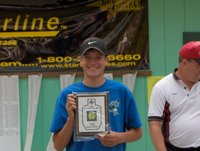This subject has been a hot-topic on The Unofficial IPSC List, an email listserv dialogue about Practical Shooting which has (obviously) no official connection to either the regional or the international governing bodies. This email listserve is merely a place where people involved in Practical Shooting Competition can let their hair down and say what they really think.
In fact, the subject (essentially, USPSA autonomy) has caused a lot of hard feelings between the Regional and the International bodies, especially in the area of Rules of Competition. IPSC, as the ruling body 'internationally', has made dramatic and draconian (in my personal opinion, and perhaps in the opinion of other USPSA members) changes in the Official Rule Book, and the USPSA BOD has felt obliged to horse-trade which rules it would accept and which it would not. To date, USPSA has only been allowed to request a regional waiver, or variation, in the competition rules. At stake is the ultimate hammer: if IPSC does not agree to the USPSA request for a waiver, then the American Region must either bow to the International rules, or it may not be permitted to consider itself a member region of IPSC.
Call this "The Nuclear Option", except that it may be exercised not by USPSA, but by IPSC. That's why we in USPSA are so excited and hopeful that the proposal will be accepted. There is no serious move to separate USPSA as a member-region of IPSC, but because the International body has (to date) required strict rules of compliance, this has become an adversarial relationship, which is not the wish of either body.
We are also expecting that it will be accepted, because it allows us to continue what would normally be a congenial relationship with the International Governing Body.
The following is the applicable text in a letter which I ("Jerry the Geek") sent to Unofficial IPSC List member "Ivan the Terrible" in response to his comments.
"Ivan" is a resident of Hungary, and has served on the IPSC Rules Committee during the past two revisions of the IPSC Rule Book. He and I have sporatically exchanged opinions for the past nine years, both publically and privately. This email letter was written in response to specific comments Ivan recently made on The Unofficial IPSC List. I have included a version below (edited to keep it on-topic.)
..................... (Geez sez) ..............
Hi Ivan,
[snip inapplicable exchange]
It's good to hear from you, even when I don't agree with you.
In a development which may come as something as a surprise to some of us, I don't disagree with you at all, at least in the broader statements:
[snip inapplicable exchange]
=============== (Ivan sez) ==============
IMHO, IPSC needs a US region, and USPSA needs IPSC. However,were USPSA leave IPSC, the IPSC USA would be created in a minute.
There would be less members, but IMHO, many would join just as many did join to IDPA when it was created. Shooting more means more fun...
..................... (Geez sez) ..............
It's doubtless true that an "IPSC USA" would be created, almost as a knee-jerk reaction.
The members of that organization would be those who wish to shoot in International Competition, under International rules, for their own perfectly good reasons.
Those who competed in USPSA matches would be those who had no reason to espouse
International competition, and only want to go to the range on the odd Saturday to compete head-to-head with their friends and neighbors.
These two groups are not necessarily mutually exclusive. I wouldn't be surprised to see American shooters who are Internationally Ranked competing in USPSA matches just as they do now.
Why?
Because they like to shoot, and if there are TWO matches in a locality which offer competitive Practical-type shooting, it provides more opportunities to compete. Slightly different rules, of course, but the shooting is the reason for the competition.
You seem to feel that the competition is the reason for the shooting. That would be mostly correct for 'professional' shooters, but not so much for 'amateur' shooters.
Most of the people who compete in IPSC spend more money on equipment, ammuntiion, travel and match fees than they expect to make in prizes, endorsements and sponsorship. They don't compete because they expect to win; they compete because they love to shoot, and IPSC competition currently gives them an EXCUSE TO SHOOT.
We deal in bragging rights, my friend. We hope to go home with 'wood', not with 'gold'.
I sincerely doubt that a USPSA which was not directly associated with IPSC would lose a great deal of members or local support.
=============== (Ivan sez) ==============
............ IMHO, the more grief would be with the USPSA. The most experienced shooters and range officers who shoot outside the US would join to the IPSC USA anyhow; and the IPSC logo, the DVC "greeting" and such would all go to IPSC USA. So for IPSC, while it's not that funny, but surviveable.
..................... (Geez sez) ..............
Here you hit on a point which seems entirely likely. If only because IPSC began in the U.S., many of us (old-timers, mostly) would be loath to give upthe symbols which originated here. We would feel that they belong to 'us', even though most USPSA members had little or nothing to do with the origins of Practical Pistol Shooting.
You may not be aware that most Americans are almost fanatic about Tradition. This is probably the most significant reason why (in an almost "Catch-22" manner) we object so strenuously to rules which violate those traditions.
Whether or not it makes any sense to the International crowd, the risk of losing a simple thing like the phrase "DVC" (which most of us can't even pronounce,let alone translate) is important to us.
No, I can't pronounce or translate it accurately, either. But still, the CONCEPT is important to me; as is the symbol.
=============== (Ivan sez) ==============
As for USPSA - being member of an international organization might or might not help to reach their goals. From here, I don't know whether you enjoy any benefits of that or not. But the current solution your BOD invented is a strike of genius. It costs almost nothing, and everybody is a winner. What's the problem with that, then?
..................... (Geez sez) ..............
Based purely on my own experience, and those of the people I usually see at USPSA matches, the 'goals' of the membership here are most often to establish a stable set of rules under which we can compete .... than means we can go to the range on a weekend and shoot a lot of pistol rounds down-range, and expect to be able to objectively define who wins and who loses.
We don't really ask a lot more than that, but there are some subtle buzz-words in that sentence. The most important is the phrase "stable set of rules".
The most important thing YOU have said is: ...the current solution your BOD invented is a strike of genius. It costs almost nothing, and everybody is a winner. What's the problem with that, then?"
The answer is .. no problem. You're absolutely correct. You shoot the way that meets your legal and cultural imperatives, and we shoot the way that meets ours. We call it by the same name, accept our differences, and no body goes away muttering about 'the other guys' (in different places that we don't know or, really, much care about.)
All we want to do is go shoot our game. The problem is when someone suit from out-of-town makes arbitrary decisions about what 'our game' should look like.
Really, that's all there is to it. If we can establish an accordance that let's us shoot the game we love, and nobody (especially someone who has never competed in a USPSA match!) seems to feel that they have the right to make arbitrary decisions about the way we choose to pass our time, we're completely happy to share a common heritage.
Do you perhaps know about "The Boston Tea Party"? Or is the phrase "No taxation without representation" familiar?
Our representation just asserted itself, and it's both timely and appropriate.
As long as we don't have to deal with some external self-professed 'higher authority' from overseas attempting to rule our way of life, we can get along with anybody.
The recently proposed solution from the USPSA BOD would allow Americans to compete in USPSA competition the way we choose, while allowing International competition to be goverened entirely by the IPSC rules. Not a problem, and we've decided to agree that both venues are "IPSC".
I can live with that.
=============== (Ivan sez) ==============
Best Regards,
Ivan "The Terrible"
.................... (Geez sez) ..............
Jerry the ( No problem. You blinked. ) Geek.









